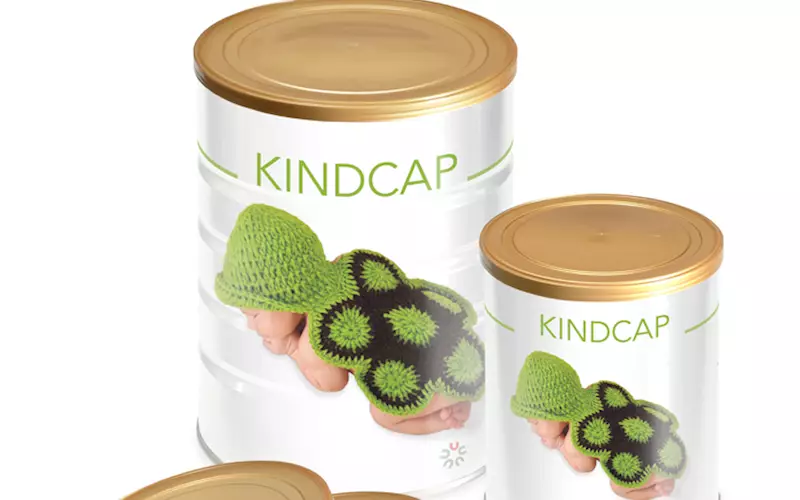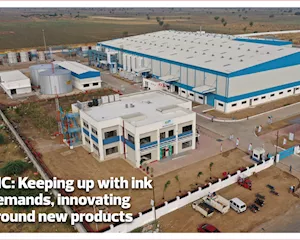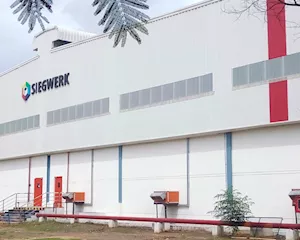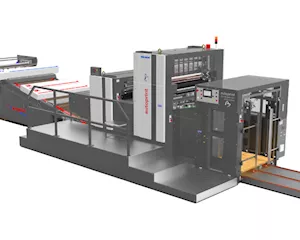United Caps unveils industry-first ‘Define your circle’ initiative
United Caps, an international manufacturer of caps and closures, has unveiled a new initiative, Define Your Circle. As part of the company’s ongoing commitment to sustainability, ‘Define Your Circle’ is designed to provide United Caps customers and their customers a simpler way to calculate full life-cycle environmental impact of their products, from before the materials enter the plant right through to its performance in the hands of the end user. In addition, ‘Define your circle’ offers a means to customers of contributing to the development of a truly circular economy, in which plastics are too valuable to waste, and are wasted when they are considered single-use.
05 Apr 2021 | By PrintWeek Team
“At United Caps, sustainability has always been at the core of our values,” said Benoit Henckes, CEO. “We are constantly looking for actions we can take to reduce the environmental impact of our caps and closures – how they are made, the materials they are constructed from, their weight, how they are sold and how they are distributed. With our industry-first ‘Define your circle’ initiative, we have extended that ability to our customers, providing easy-to-use tools that allow us to help them calculate their carbon footprint more accurately, taking actions where appropriate to reduce their life cycle environmental impact and make data-driven informed decisions about their products. We consider this to be a responsible approach to doing business in this era of climate change and negative human impact on the environment.”
United Caps is seeing a growing interest in the use of sustainability certified bio-based and recycled resins as part of an approach to product composition. At the same time, both customers and consumers have been seeking to better understand the weight of decisions they make in the realm of sustainability.
One way to measure environmental effect beyond just making assumptions about impact, which is probably the most frequent approach, is through a process called Life Cycle Assessment (LCA) that assesses the environmental impact of food packaging, including material used, end of life (waste), as well as other environmental impacts, such as the overall effects of fossil-fuel-based or bio-based feed stocks. The process also shows the impact on the overall carbon footprint by using lighter-weight (but equally as effective) caps and closures, smaller neck sizes and more.
Especially for smaller to mid-sized companies, this can be a challenging, complex and expensive process that requires specialists to complete. In addition, there are many misconceptions about the lifecycle environmental impact of various types of plastics, including those manufactured from fossil-fuel feed stocks and those manufactured from bio-based feed stocks.
“Our goal with ‘Define your circle’ is to give our customers a tool to make informed choices in consideration of their environmental impact and to compare our products with each other and with competitive products to reach the most sustainable solution possible,” Henckes explained.
Instead of depending on the complexities of a full LCA assessment, United Caps has chosen to leverage one of the industry’s largest life cycle assessment databases, GaBi, which is constantly updated as new technology and new insights come to the fore.
GaBi stems from the German words “Ganzheitliche Bilanzierung” for holistic balancing and has been around for a quarter of a century with the goal of easing the process of life cycle assessments. The United Caps ‘Define your circle’ tool gives customers access to this extensive database, delivering insight and guidance that leads to better sustainability decision making.
As part of this holistic approach, ‘Define your Circle’ allows customers to analyse the environmental footprint of caps, closures, and the containers they are used with, making better decisions about many aspects of product manufacture and distribution.
“It’s important to recognise the complexities that surround making the right sustainability choices. United Caps have adopted an approach that places an emphasis on data-driven transparency to aid decision-making,” says Henckes.














 See All
See All